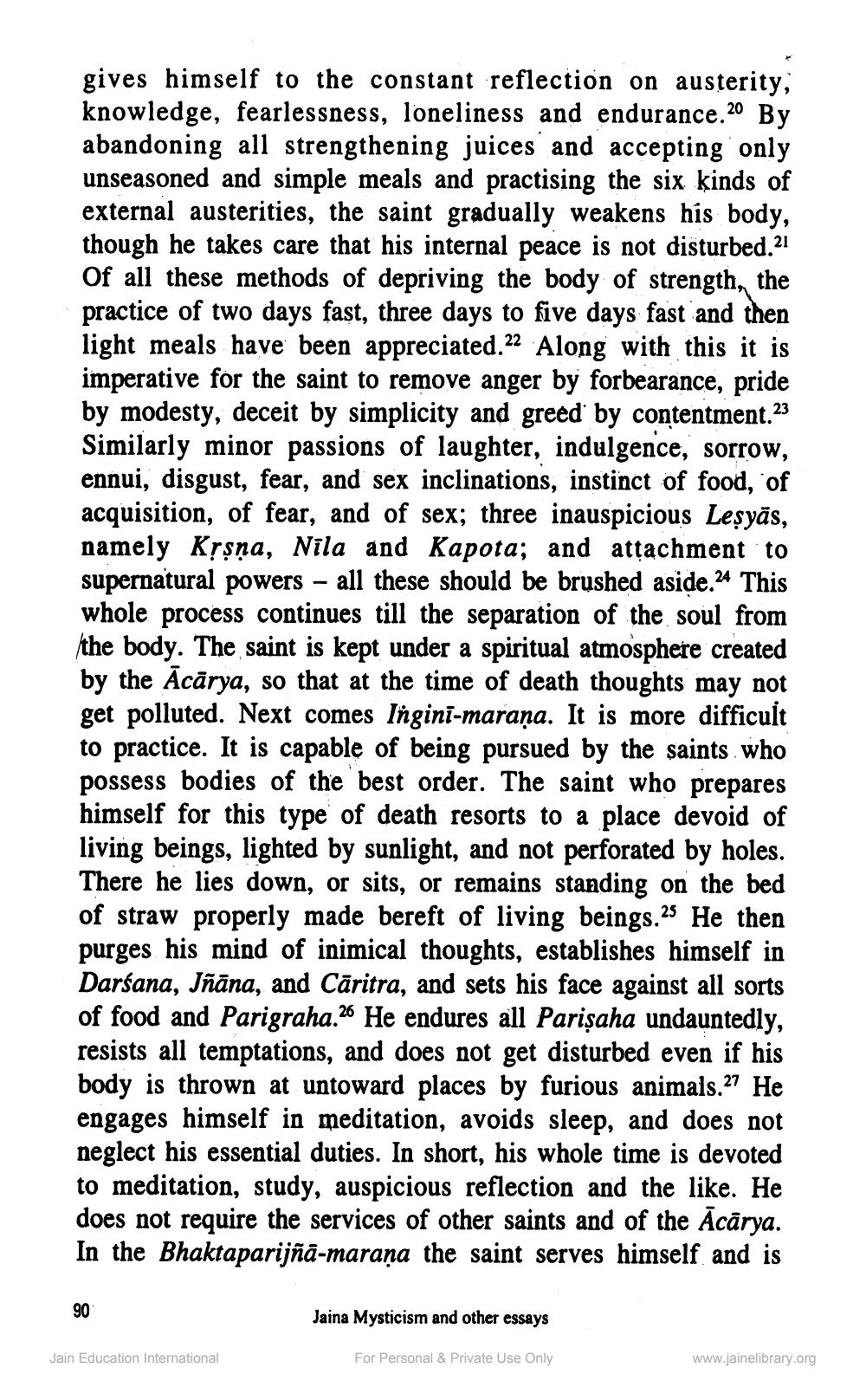________________
gives himself to the constant reflection on austerity, knowledge, fearlessness, loneliness and endurance.20 By abandoning all strengthening juices and accepting only unseasoned and simple meals and practising the six kinds of external austerities, the saint gradually weakens his body, though he takes care that his internal peace is not disturbed.21 Of all these methods of depriving the body of strength, the practice of two days fast, three days to five days fast and then light meals have been appreciated.22 Along with this it is imperative for the saint to remove anger by forbearance, pride by modesty, deceit by simplicity and greed' by contentment.23 Similarly minor passions of laughter, indulgence, sorrow, ennui, disgust, fear, and sex inclinations, instinct of food, of acquisition, of fear, and of sex; three inauspicious Leşyās, namely Kșşņa, Nila and Kapota; and attachment to supernatural powers – all these should be brushed aside. 24 This whole process continues till the separation of the soul from the body. The saint is kept under a spiritual atmosphere created by the Ācārya, so that at the time of death thoughts may not get polluted. Next comes Ingini-maraña. It is more difficult to practice. It is capable of being pursued by the saints who possess bodies of the best order. The saint who prepares himself for this type of death resorts to a place devoid of living beings, lighted by sunlight, and not perforated by holes. There he lies down, or sits, or remains standing on the bed of straw properly made bereft of living beings.25 He then purges his mind of inimical thoughts, establishes himself in Darśana, Jñāna, and Cāritra, and sets his face against all sorts of food and Parigraha.2. He endures all Parişaha undauntedly, resists all temptations, and does not get disturbed even if his body is thrown at untoward places by furious animals.27 He engages himself in meditation, avoids sleep, and does not neglect his essential duties. In short, his whole time is devoted to meditation, study, auspicious reflection and the like. He does not require the services of other saints and of the Acārya. In the Bhaktaparijñā-maraņa the saint serves himself and is
Jaina Mysticism and other essays
Jain Education International
For Personal & Private Use Only
www.jainelibrary.org




